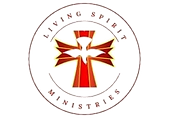
Before which three authorities was Jesus tried after his arrest?
Answer: Annas (former high priest), Caiaphas (current high priest) and the Sanhedrin, and Pontius Pilate (with a brief appearance before Herod Antipas in Luke's account)
Interesting Tidbit: Jesus faced both religious trials (before Jewish authorities) and civil trials (before Roman authorities). The Jewish trials were technically illegal under Jewish law, which prohibited capital trials at night or during festivals. John uniquely mentions the preliminary questioning by Annas, while Luke alone records Herod's involvement. The multiple trials emphasize the collaboration between religious and political powers against Jesus while simultaneously shifting responsibility between them.
Source: Matthew 26:57-27:26, Mark 14:53-15:15, Luke 22:54-23:25, John 18:12-19:16
See insights and ads
Like
Comment
Send
Share
